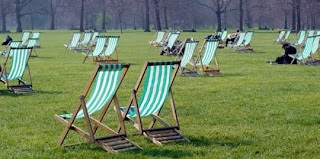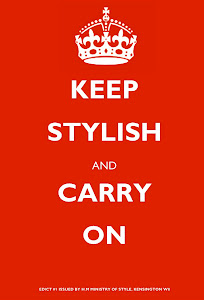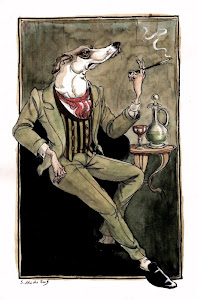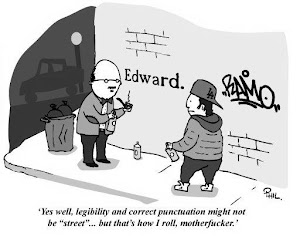31 August 2011
Sanibel Island, Florida
A recently discovered photo taken off Sanibel Island, Florida, in the late 1970s. I am diving off a motor boat to collect a large whelk from the bottom, having just consumed a delicious cheeseburger ("one of the best I've ever had!") at the Old House on Cabbage Key. My friend Sefton grips the railing to steady himself. Note my tan, blonde hair, red bathing costume, and large diving knife with which to fend off sharks. My family wintered on Sanibel for 10 years, staying in a large house off Periwinkle Way. We even spent a few summers there, which is not to be recommended due to heat and humidity. On Sanibel I learned to drive a moped, tease alligators, fish for tarpon and sea trout, hunt for coral snakes, and to stay away from sharks and stingrays. One winter I observed throngs of young people sifting through the seaweed on a remote beach, only to be told they were looking for washed-up marijuana from a drug smuggler's boatwreck just offshore. I have not visited Sanibel since 1985. I suspect like most beloved places of my youth it has changed--and not for the better. I view the prospect of visiting after all these years with a certain trepidation.
Labels:
Admiral Cod
30 August 2011
29 August 2011
Tennis Fashion (Assouline)
 'Looking at the fashion of tennis is like opening a window into culture and society. Tennis is the second most popular sport in the West, and over the last century it has become, more than any other, an important part of our society and culture. The remarkable impact of tennis is apparent in the record number of fans and spectators the sport has attracted in the thirty years since major tournaments have been broadcast live on radio and TV. As tennis comes of age with yet another museum devoted to it in Paris (inaugurated at Roland-Garros during the May 2003 championships), this journey through the history of tennis fashions sheds new light on the top sporting events of the 20th century, on the lifestyles that tennis brought into being and turns the spotlight on the most charismatic champions and the way they have influenced the fashions of their time.'
'Looking at the fashion of tennis is like opening a window into culture and society. Tennis is the second most popular sport in the West, and over the last century it has become, more than any other, an important part of our society and culture. The remarkable impact of tennis is apparent in the record number of fans and spectators the sport has attracted in the thirty years since major tournaments have been broadcast live on radio and TV. As tennis comes of age with yet another museum devoted to it in Paris (inaugurated at Roland-Garros during the May 2003 championships), this journey through the history of tennis fashions sheds new light on the top sporting events of the 20th century, on the lifestyles that tennis brought into being and turns the spotlight on the most charismatic champions and the way they have influenced the fashions of their time.'
28 August 2011
Virtues of Paganism
 Courage, personal honor, and spiritual and physical self-surpassment are often cited as the most important virtues of paganism. In contrast to Christian and Marxian utopian optimism, paganism emphasizes the profound sense of the tragic, the tragic--as seen in Greek tragedies--that sustains man in his Promethean plight and that makes his life worth living. It is the pagan sense of the tragic that can explain man's destiny---destiny, which for old Indo-Europeans "triggered action, endeavor, and self-surpassment. Hans Günther summarizes this point in the following words:
Courage, personal honor, and spiritual and physical self-surpassment are often cited as the most important virtues of paganism. In contrast to Christian and Marxian utopian optimism, paganism emphasizes the profound sense of the tragic, the tragic--as seen in Greek tragedies--that sustains man in his Promethean plight and that makes his life worth living. It is the pagan sense of the tragic that can explain man's destiny---destiny, which for old Indo-Europeans "triggered action, endeavor, and self-surpassment. Hans Günther summarizes this point in the following words: Indo-European religiosity is not rooted in any kind of fear, neither in fear of deity nor in fear of death. The words of the Latter-day Roman poet, that fear first created the Gods (Statius, Thebais, 3:661: primus in orbe fecit deos timor), cannot be applied to the true forms of Indo-European religiosity, for wherever it has unfolded freely, the "fear of the Lord" (Proverbs, Solomon 9, 10; Psalm 11, 30) has proved neither the beginning of belief nor of wisdom.
Some have suggested that the greatest civilizations are those that have shown a strong sense of the tragic and that have had no fear of death. In the pagan concept of the tragic, man is encouraged to take responsibility before history because man is the only one who gives history a meaning. Commenting on Nietzsche, Giorgio Locchi writes that, in pagan cosmogony, man alone is considered a forger of his own destiny (faber suae fortunea), exempt from biblical or historical determinism, "divine grace," or economic and material constraints. Paganism stresses a heroic attitude toward life as opposed to the Christian attitude of culpability and fear toward life. Sigrid Hunke writes of the essentialization of life, since both life and death have the same essence and are always contained in both. The life, which at any moment is face-to-death and with-death, renders the future permanent in each instant, and life becomes eternal by acquiring an inscrutable profundity, and by assuming the value of eternity.
Tomislav Sunic, 'Marx, Moses, and the Pagans in the Secular City', CLIO: A Journal of Literature, History, and the Philosophy of History, vol. 24 No 2, Winter 1995
26 August 2011
Summer Rolex Style
 The end of summer nears, so what better time to go out with a bang? I am not given much to what I think the under-youth term blynge, but occasionally that is exactly how I roll. Discreetly, of course. The exclusive photograph (at left) shows a Rolex Oyster Perpetual in a two-tone style. I have owned this watch for several years, but rarely wear it now. It is definitely a style for an older gentleman. Indeed most of the chaps I see wearing a watch like this are well into their 50s and beyond. My uncle in Connecticut still occasionally wears one he acquired in the 1960s with the wages of a brief competitive surfing career in South Africa. (How I wish I had followed in his footsteps...!) In the photo I have paired my watch with a Brooks Brothers summer poplin suit with a 3/2 roll and a Brooks Brothers button-down shirt in ecru. If one is inclined to deploy a bit of flash in the timepiece department, I always say, it is best to balance it with more sober clothing.
The end of summer nears, so what better time to go out with a bang? I am not given much to what I think the under-youth term blynge, but occasionally that is exactly how I roll. Discreetly, of course. The exclusive photograph (at left) shows a Rolex Oyster Perpetual in a two-tone style. I have owned this watch for several years, but rarely wear it now. It is definitely a style for an older gentleman. Indeed most of the chaps I see wearing a watch like this are well into their 50s and beyond. My uncle in Connecticut still occasionally wears one he acquired in the 1960s with the wages of a brief competitive surfing career in South Africa. (How I wish I had followed in his footsteps...!) In the photo I have paired my watch with a Brooks Brothers summer poplin suit with a 3/2 roll and a Brooks Brothers button-down shirt in ecru. If one is inclined to deploy a bit of flash in the timepiece department, I always say, it is best to balance it with more sober clothing.
Labels:
Admiral Cod,
Rolex,
Style
An Arundel Tomb (Philip Larkin)

An Arundel Tomb
Side by side, their faces blurred,
The earl and countess lie in stone,
Their proper habits vaguely shown
As jointed armour, stiffened pleat,
And that faint hint of the absurd -
The little dogs under their feet.
Such plainness of the pre-baroque
Hardly involves the eye, until
It meets his left-hand gauntlet, still
Clasped empty in the other; and
One sees, with a sharp tender shock,
His hand withdrawn, holding her hand.
They would not think to lie so long.
Such faithfulness in effigy
Was just a detail friends would see:
A sculptor's sweet commissioned grace
Thrown off in helping to prolong
The Latin names around the base.
They would not guess how early in
Their supine stationary voyage
Their air would change to soundless damage,
Turn the old tenantry away;
How soon succeeding eyes begin
To look, not read. Rigidly they
Persisted, linked, through lengths and breadths
Of time. Snow fell, undated. Light
Each summer thronged the grass. A bright
Litter of birdcalls strewed the same
Bone-littered ground. And up the paths
The endless altered people came,
Washing at their identity.
Now, helpless in the hollow of
An unarmorial age, a trough
Of smoke in slow suspended skeins
Above their scrap of history,
Only an attitude remains:
Time has transfigured them into
Untruth. The stone fidelity
They hardly meant has come to be
Their final blazon, and to prove
Our almost-instinct almost true:
What will survive of us is love.
25 August 2011
Evelyn Waugh's Noonday Reviver
Evelyn Waugh's Noonday Reviver
1 hefty shot of gin
1 (1/2 pint) bottle of Guinness
Ginger Beer
'Put the gin and Guinness into a pint sliver tankard and fill to the brim with ginger beer. I cannot vouch for the authenticity of the attribution, which I heard in talk, but the mixture will certainly revive you, or something. I should think two doses is the limit.'
Kingsley Amis, Everyday Drinking: The Distilled Kingsley Amis (2008)
24 August 2011
23 August 2011
22 August 2011
Clothing (C.P. Cavafy)
 In a chest or wardrobe of precious ebony, I shall place and keep my life’s clothing.
In a chest or wardrobe of precious ebony, I shall place and keep my life’s clothing.The blue garments. And then the red--these the most beautiful. And afterwards the yellow. And finally the blue again, only much more faded, these, than the first.
I shall keep them with reverence and with great sorrow.
When I come to put on black garments and live in a black house, in a dark room, I shall sometimes open the wardrobe with joy, with longing, with despair.
I shall gaze on the garments, and I shall recall the great feast--which by then will be completely over.
Completely over. The furniture scattered in disarray through the great rooms. Broken plates and glasses on the floor. All of the candles burnt down to their ends. All of the wine drunk. All of the guests gone. Some who are tired will sit by themselves, all alone, like me, in dark houses; others, even more tired, will have gone to bed.
C.P. Cavafy, Clothing
21 August 2011
Discourse on Sunday Drivers
 As you know, I like to go fast. 'Live fast, die young(ish), and leave a handsome corpse'--that is my mantra. At least where motor cars are concerned. On land I may appear friendly, polite, well-spoken, "one of nature's gentlemen". You might even invite me out for a cocktail or feel a sudden urge to introduce me to your parents. But put me behind a wheel and I'm a completely different chap, as one ex-wife and numerous ex-girlfriends can tell you.
As you know, I like to go fast. 'Live fast, die young(ish), and leave a handsome corpse'--that is my mantra. At least where motor cars are concerned. On land I may appear friendly, polite, well-spoken, "one of nature's gentlemen". You might even invite me out for a cocktail or feel a sudden urge to introduce me to your parents. But put me behind a wheel and I'm a completely different chap, as one ex-wife and numerous ex-girlfriends can tell you. Sadly I don't yet have a proper sports car in which to express my vehicular passions. Instead I drive an old beloved Benz who starts shaking and rattling the second we approach 95 m.p.h., which is far too slow for California motorways, especially in the early mornings and evenings. There are times we are forced to trundle along at an ungodly 40 or 50 m.p.h. And the reason for this? Sunday drivers. Like Asian drivers, Sunday drivers are not just a cliché. They actually exist! And they are not simply clueless old people. Young single drivers and cars full of families are also complicit in the phenomenon.
I have an explanation. Sunday is a day of worship. Many Sunday drivers are on their way from religious services. They drive along slowly as if in a trance. They are still under the influence of the euphoric effects of being surrounded by like-minded people and subjected to an hour or two of feel-good twiddle-twaddle. It's worse in the evangelical churches. But even mainline Protestant and Roman Catholic churches have succumbed to happy-clappy worship, which has no other purpose than to over-excite its audience with emotionalism and whimsy, like kids hopped up on video games and Jujubes. Sunday drivers are those same kids coming off a sugar high.
So it's no wonder such drivers are seemingly oblivious to other cars, ignorant of their surroundings, suddenly forgetful of the rules of the road: they are drunk with the Word of God as communicated to them by Pastor Bob.
Sunday drivers are a menace to society, and, therefore, should be banned from the roads.
Labels:
Admiral Cod
ils ne savent même plus tuer un lapin
 Ils ne savent même plus tuer un lapin
Ils ne savent même plus tuer un lapinL’histoire est simple, terriblement simple, et ce serait déjà bien suffisant si elle n’était pas terrible.
Bon, nous connaissons le vaste chantier de destruction de l’Occident chrétien entreprit avec la révolution française. Après, le cahot des guerres fratricides est venu rythmer cahin-caha le développement des nations créées sur la fameuse table rase jusqu’au premier affrontement mondial, cette boucherie orchestrée par les princes de l’usure. Y furent éliminés une grande partie des élites, dans tous les domaines, des nations qui prirent part au conflit. Mais il en restait toujours, et comme ceux là menaçaient de refonder une Europe forte basée sur les nations, un deuxième affrontement mondial fut financé par les mêmes. Une bonne partie de ce qui restait des élites et des guerriers fut laminée dans le combat contre l’ogre bolchévique. La guerre mondiale fut perdue par les nationalistes dont beaucoup connurent la bienveillante justice des vainqueurs. Mais, il en restait toujours, on les envoya dans des endroits impossibles au Tonkin et ailleurs. Bien entendu, on commençait à voir la portion congrue des guerriers et des élites, celle qui avait survécu et que l’on envoya en Algérie, et ainsi de suite.
Cependant, en Europe, à grand cris de « plus jamais ça », de culpabilisations et de repentances, on castrait joyeusement un matériel humain pas bien costaud, pas bien solide sur ses jambes. Et puis, pour être certain que ne renaîtrait pas un sauveur ou une Jeanne d’Arc, on perpertrait à nouveau par l’avortement le Massacre des Innocents, perpétuel celui-là, crime d’Etat financé par les impôts de ceux qui en sont les victimes. Spirituellement, on balançait un Vatican II aux conséquences désastreuses, la dignité et la fierté catholique ainsi que l’esprit des croisades étaient mis à terre. Alors, sans armes, sans uniformes et sans violence apparents ont fit envahir la vieille Europe, peu à peu et de manière croissante, par des hordes de barbares hébétés et brutaux qui salissent et qui cassent tout ce qu’ils touchent, et cela se passe sans problème aucun, car l’homme européen ne sait plus tuer. Il ne sait déjà plus tuer un lapin, le sang lui fait peur, alors tuer un barbare qui viole sa sœur ou sa mère… Au fil des générations le système nerveux des européens, déjà rendu débile par une consommation excessive d’alcool, a été annihilé, ce n’est plus qu’une carcasse avec de la viande dedans et des pulsions consomatrices. Dès que l’on énonce le simple fait qu’il faudra bien tuer tous ces envahisseurs qui chaque jour dévoilent un peu plus le pan de leur volonté de conquête, si on ne veut pas disparaître ou leur sevir de porteur d’eau, on rencontre des regards apeurés d’effarés qui vous prennent pour un fou, tandis que dans ce qui leur reste de cervelle on peut voir cliqueter les étincelles des reflexes pavloviens « plus jamais ça, homme blanc = criminel exploiteur universel, etc. »
L’homme blanc ne sait plus tuer, il ne sait plus tuer un lapin, il sait encore moins tuer son ennemi. C’est là son problème fondamental.
+
20 August 2011
Houellebecq On This Anglo-Saxon World
 INTERVIEWER: And what do you think of this Anglo-Saxon world?
INTERVIEWER: And what do you think of this Anglo-Saxon world?HOUELLEBECQ: You can tell that this is the world that invented capitalism. There are private companies competing to deliver the mail, to collect the garbage. The financial section of the newspaper is much thicker than it is in French papers.
The other thing I’ve noticed is that men and women are more separate. When you go into a restaurant, for example, you often see women eating out together. The French from that point of view are very Latin. A single-sex dinner would be considered boring. In a hotel in Ireland, I saw a group of men talking golf at the breakfast table. They left and were replaced by a group of women who were discussing something else. It’s as if they’re separate species who meet occasionally for reproduction. There was a line I really liked in a novel by Coetzee. One of the characters suspects that the only thing that really interests his lesbian daughter in life is prickly-pear jam. Lesbianism is a pretext. She and her partner don’t have sex anymore, they dedicate themselves to decoration and cooking.
Maybe there’s some potential truth there about women who, in the end, have always been more interested in jam and curtains.
Michel Houellebecq, Paris Review No. 194, Autumn 2010
Labels:
Houellebecq
Nordic Soul: The World As It Will Be
'The Nordic man does not live in the world as it is; he lives always in the world as it will be. He is not the master of the instant, but rather the master of the distance. He is not cutting suddenly into the curve; he bends the curve. For him turning is “nice” if it can be predicted and then, if possible, played down. The Mediterranean driver loves surprise: only in it he can prove to be the master of the moment. The Nordic driver anticipates always ahead of the coming event, even a possible coming event. In this way he provides for himself some preplanned traffic regulations for all possible cases, which would likely irritate the Mediterranean driver, perhaps more so than it would make the driving easier for him. For the driver of the Mediterranean type there is no relief if the thrill of surprise is missing.'
Ludwig F. Clauss, Rasse und Seele (1938)
Ludwig F. Clauss, Rasse und Seele (1938)
19 August 2011
17 August 2011
The Times Book of Modern Manners: Perfect Behaviour In An Imperfect World (John Morgan)
 |
| God knows we need all the help we can get... |
Crockett & Jones Slip-Ons
 |
| A pair of C&J side-gusseted brogued slip-ons, one of several in my collection |
16 August 2011
Simon Raven: Neat, Intelligent, and Lucid
 "I never said I was an artist. I am an entertainer...I arrange words in pleasing patterns in order to make money. I try to give good value--to see that my patterns are well wrought--but I do not delude myself by inflating the nature of my function. I try to be neat, intelligent and lucid: let others be 'creative' or 'inspired.'"
"I never said I was an artist. I am an entertainer...I arrange words in pleasing patterns in order to make money. I try to give good value--to see that my patterns are well wrought--but I do not delude myself by inflating the nature of my function. I try to be neat, intelligent and lucid: let others be 'creative' or 'inspired.'"Simon Raven, Fielding Gray (1967)
Labels:
Simon Raven
15 August 2011
14 August 2011
Riviera Appeal
 "It really is the perfect holiday. I mean, the heat is intense, the garden lovely, the chair long and cool, the lime-juice at hand, a bathing pool there if one wishes to splash, scenery, books, gramophones, pretty people--and above all, the sense that it is not going on too long."
"It really is the perfect holiday. I mean, the heat is intense, the garden lovely, the chair long and cool, the lime-juice at hand, a bathing pool there if one wishes to splash, scenery, books, gramophones, pretty people--and above all, the sense that it is not going on too long."Harold Nicolson from Villa Mauresque, Cap Ferrat, 4 August 1938, Diaries & Letters 1930-39 (1969)
13 August 2011
Bread and Wine (Friedrich Hölderlin)
7.
But my friend, we have come too late. True, the gods are still alive
But somewhere high above us, in another world.
There they repeat themselves eternally, and don’t give a damn
If we live or die, so little do they care about us.
For a weak vessel cannot contain them. Only from time to time
Can humans bear the fullness of the gods. And therefore,
The life we know is a dream about them. But confusion
And sleep assist us, sorrow and night make us strong,
And soon heroes enough will emerge from the warlord’s cradle,
With hearts rivaling a god’s in courage.
In the meantime, I believe it is better to sleep than to live
Without friends, waiting without hope, not knowing the right
Thing to say or do -- and what, after all, is the use
And purpose of poets in an age of darkness?
Yet you say they are like the priests of the wine god,
Moving from place to place in the sacred night.
But my friend, we have come too late. True, the gods are still alive
But somewhere high above us, in another world.
There they repeat themselves eternally, and don’t give a damn
If we live or die, so little do they care about us.
For a weak vessel cannot contain them. Only from time to time
Can humans bear the fullness of the gods. And therefore,
The life we know is a dream about them. But confusion
And sleep assist us, sorrow and night make us strong,
And soon heroes enough will emerge from the warlord’s cradle,
With hearts rivaling a god’s in courage.
In the meantime, I believe it is better to sleep than to live
Without friends, waiting without hope, not knowing the right
Thing to say or do -- and what, after all, is the use
And purpose of poets in an age of darkness?
Yet you say they are like the priests of the wine god,
Moving from place to place in the sacred night.
12 August 2011
Le Snob Guide To Tailoring
 'Is there a sartorial obsessive in you waiting to get out? A modern-day dapper Don Draper? Fond of telling people that strictly speaking, it's a coat, not a jacket? You need a guide to feed that obsession, to help you discover and invest in tailored clothes. Perhaps most importantly, to ensure you are always the best dressed. You need Le Snob: Tailoring. Tailored clothes lend poise and authority to the man who wears them. Evocative and richly appointed with little-known facts, this book is about appreciating the world's most impeccable tailoring to the full. Providing the exclusive knowledge that every true snob must possess, plus authentic insights into the lives and skills of expert tailors, Le Snob: Tailoring offers impeccable advice on how to select, wear and maintain fine garments from bespoke suits to handmade shirts as well as a directory of the world's most prestigious men's outfitters, from Saville Row's finest to Anderson & Sheppard, Le Snob: Tailoring is the perfect fit for any well-appointed bookshelf.'
'Is there a sartorial obsessive in you waiting to get out? A modern-day dapper Don Draper? Fond of telling people that strictly speaking, it's a coat, not a jacket? You need a guide to feed that obsession, to help you discover and invest in tailored clothes. Perhaps most importantly, to ensure you are always the best dressed. You need Le Snob: Tailoring. Tailored clothes lend poise and authority to the man who wears them. Evocative and richly appointed with little-known facts, this book is about appreciating the world's most impeccable tailoring to the full. Providing the exclusive knowledge that every true snob must possess, plus authentic insights into the lives and skills of expert tailors, Le Snob: Tailoring offers impeccable advice on how to select, wear and maintain fine garments from bespoke suits to handmade shirts as well as a directory of the world's most prestigious men's outfitters, from Saville Row's finest to Anderson & Sheppard, Le Snob: Tailoring is the perfect fit for any well-appointed bookshelf.'
11 August 2011
Drakes London (Wall Street Journal)
 |
| © Drakes London |
I don’t like the shiny look. I like something that’s more worn, softer and handmade. When things are made by machine, they’re flat. When they’re made by hand, they’re three-dimensional. You don’t want to look like you just got off the boat from Naples. Anyway, the high-class dressers there want to look English.
For men, fashion is for kids. I always thought Prince Charles was a stylish dresser. Lots of Englishmen think he’s old-fashioned, but my Italian friends agree with me. Men should be stylish, not fashionable.
I only have one pair of leather shoes. Everything else is made from suede. I always wear purple socks, which is a bit unusual. I like to match a lilac cashmere sweater with plain but nice lilac socks. It’s not rocket science, but it’s a look.
10 August 2011
Fairbanks: Dashing Shoes By Cleverley
 If you detect a certain lightness in my step, surely it is because I am wearing dashing shoes. The summer season calls for lighter suitings and a different approach to footwear. One might say, a more elegant approach. At left is pictured a pair of black elastic-sided shoes, the Fairbanks model from the Anthony Cleverley line at G.J. Cleverley in London. The firm refers to it as a galoshed shoe, which I think is a rather unfortunate choice of word, though it is the company's signature style. I am quite fond of it. From my childhood I recall my grandfather, a Canadian oil company executive, in such shoes. In the photo I am wearing a sharkskin suit in light grey and fine charcoal socks, both from Brooks Brothers. In related news, in light of ongoing events in London, I am in the process of organising a band of overseas exiles to jet over to England to defend our favourite clothing and shoe establishments from the invading savages. Because God knows the pussified indigenous inhabitants will not do it themselves. We shall be known as the Savile Row Irregulars, or Admiral Cod's Own Hussars. You know where to find me.
If you detect a certain lightness in my step, surely it is because I am wearing dashing shoes. The summer season calls for lighter suitings and a different approach to footwear. One might say, a more elegant approach. At left is pictured a pair of black elastic-sided shoes, the Fairbanks model from the Anthony Cleverley line at G.J. Cleverley in London. The firm refers to it as a galoshed shoe, which I think is a rather unfortunate choice of word, though it is the company's signature style. I am quite fond of it. From my childhood I recall my grandfather, a Canadian oil company executive, in such shoes. In the photo I am wearing a sharkskin suit in light grey and fine charcoal socks, both from Brooks Brothers. In related news, in light of ongoing events in London, I am in the process of organising a band of overseas exiles to jet over to England to defend our favourite clothing and shoe establishments from the invading savages. Because God knows the pussified indigenous inhabitants will not do it themselves. We shall be known as the Savile Row Irregulars, or Admiral Cod's Own Hussars. You know where to find me.
Labels:
Admiral Cod,
Brogues,
Cleverley,
Shoes,
Style
09 August 2011
Ecstasy & Contemplation
 How utterly frivolous these words must appear to you at times! I do recognise my great fortune, for which I am grateful. And I delight in the rituals. But all is not as it seems. We slouch towards a storm-smothered end. I express my view here, in the last days of the Kali Yuga, like a bloody nightmare foretold. I focus my eyes with fixed aim to ignore the hurricane-chaos around me, which grows more intense. A daily combination of cocktails and codeine provides ecstasy and contemplation. I am drunk most of the time, or otherwise disengaged, just to stay alive. I plumb the depths of memory and conjecture, a reteller of future myths. But it is not enough. Bloodlust, revenge, glory: I was made for it. It's coming. Cometh the hour, cometh the man.
How utterly frivolous these words must appear to you at times! I do recognise my great fortune, for which I am grateful. And I delight in the rituals. But all is not as it seems. We slouch towards a storm-smothered end. I express my view here, in the last days of the Kali Yuga, like a bloody nightmare foretold. I focus my eyes with fixed aim to ignore the hurricane-chaos around me, which grows more intense. A daily combination of cocktails and codeine provides ecstasy and contemplation. I am drunk most of the time, or otherwise disengaged, just to stay alive. I plumb the depths of memory and conjecture, a reteller of future myths. But it is not enough. Bloodlust, revenge, glory: I was made for it. It's coming. Cometh the hour, cometh the man.
Labels:
Admiral Cod
08 August 2011
07 August 2011
English Catholic Heroes
 'Through the great men and women of the English Church we can see the continuous inspiration of the Catholic Faith in England as an unbroken tradition shaping life and work, history and culture, for more than fourteen centuries. In this book a group of distinguished authors with varying interests, champion the achievements of nineteen seminal figures in the history of the English Church - from the seventh century to the present time - who through their Catholic witness have made a contribution to the spiritual, intellectual, ethical and physical welfare of the nation which can be fairly described as 'heroic'. Heroism takes many different forms. Self-evidently heroic are the martyrs of the penal years who sacrificed their lives for the sake of the Faith; others earn their place in this book because their achievements in many different fields of endeavour are truly heroic - in education and social teaching, in architecture and literature, and in challenging the nation's conscience and our national consciousness. The continuity of the Catholic witness in England is often overlooked because of the dislocation caused by the English Reformation, the three subsequent centuries of suppression of the Church, and the rewriting of history to create a new national myth. However, in these lives we can see the impact of Catholicism across the centuries and find inspiration for our own times.'
'Through the great men and women of the English Church we can see the continuous inspiration of the Catholic Faith in England as an unbroken tradition shaping life and work, history and culture, for more than fourteen centuries. In this book a group of distinguished authors with varying interests, champion the achievements of nineteen seminal figures in the history of the English Church - from the seventh century to the present time - who through their Catholic witness have made a contribution to the spiritual, intellectual, ethical and physical welfare of the nation which can be fairly described as 'heroic'. Heroism takes many different forms. Self-evidently heroic are the martyrs of the penal years who sacrificed their lives for the sake of the Faith; others earn their place in this book because their achievements in many different fields of endeavour are truly heroic - in education and social teaching, in architecture and literature, and in challenging the nation's conscience and our national consciousness. The continuity of the Catholic witness in England is often overlooked because of the dislocation caused by the English Reformation, the three subsequent centuries of suppression of the Church, and the rewriting of history to create a new national myth. However, in these lives we can see the impact of Catholicism across the centuries and find inspiration for our own times.'
05 August 2011
In Defence of the Semi-Colon
 I admit it: I've used the semi-colon on more than one occasion. But apparently not frequently enough. It is now, according to an Australian newspaper, in danger of going extinct:
I admit it: I've used the semi-colon on more than one occasion. But apparently not frequently enough. It is now, according to an Australian newspaper, in danger of going extinct:For centuries, the semicolon has carved out a tenuous - but precious - place for itself between the comma and the colon.
Without the humble semicolon, some of the greatest achievements of English prose - the looping, qualified sentences of Henry James; the elaborate, ironic juxtapositions of Evelyn Waugh - would not have been possible. It has endured; it has persisted; it has even thrived.
But now - under the various pressures of texting, email, journalese, "plain English" and PowerPoint - the career of the semicolon appears rapidly to be approaching a full-stop.
The rare, and usually middle-aged [WTF?!], journalists who still revere the semicolon will discover it is no favourite of sub-editors, who will nowadays allow the comma to do much of the semi's previous work of co-ordinating ideas inside a sentence. And as sentences get shorter, there is less of that work to do.
Essential Shoes
 |
| Dimitri Bottier Semi-Brogue |
04 August 2011
WASPs: A Case of Stolen Identity
 By the late Sixties, American opinion leaders openly encouraged the wholesale expropriation of WASP culture. Time magazine, for example, pointedly unhooked WASP identity from any particular race, religion, or ethnicity. In fact, America's leading newsweekly issued, in its most magisterial manner, a journalistic dispensation authorizing collective identity theft on a mass scale. "Ultimately," its middle class readers were informed, "Waspism may be more a state of mind, a pattern of behavior, than a rigid ethnic type." Since some "non-Wasps display all the characteristics normally associated with the most purebred Wasps," being "white, Anglo-Saxon and Protestant" is not enough to make someone a Wasp in spirit." Signalling the final collapse of Anglo-Saxon Protestant hegemony, the magazine consigned the ethnoreligious signifier in an already "mildly offensive" ethnonym to lower-case orthography. "Waspism" was defined not as an ethnicity but as an upper-middle class lifestyle, the product not of British blood but of the "right education, style, social position, genealogy, achievement, wealth, profession, influence or politics." From the commanding heights of the corporate media, Time extended its blessing to a rapidly expanding class of "Waspirants" altogether bereft of ancestral ties to England.
By the late Sixties, American opinion leaders openly encouraged the wholesale expropriation of WASP culture. Time magazine, for example, pointedly unhooked WASP identity from any particular race, religion, or ethnicity. In fact, America's leading newsweekly issued, in its most magisterial manner, a journalistic dispensation authorizing collective identity theft on a mass scale. "Ultimately," its middle class readers were informed, "Waspism may be more a state of mind, a pattern of behavior, than a rigid ethnic type." Since some "non-Wasps display all the characteristics normally associated with the most purebred Wasps," being "white, Anglo-Saxon and Protestant" is not enough to make someone a Wasp in spirit." Signalling the final collapse of Anglo-Saxon Protestant hegemony, the magazine consigned the ethnoreligious signifier in an already "mildly offensive" ethnonym to lower-case orthography. "Waspism" was defined not as an ethnicity but as an upper-middle class lifestyle, the product not of British blood but of the "right education, style, social position, genealogy, achievement, wealth, profession, influence or politics." From the commanding heights of the corporate media, Time extended its blessing to a rapidly expanding class of "Waspirants" altogether bereft of ancestral ties to England.The WASP Question: An Essay on the Biocultural Evolution, Present Predicament, and Future Prospects of the Invisible Race, Andrew Fraser (2011)
Labels:
WASP
02 August 2011
Stake Your Life
 "If we look on idly, heaven and earth will never be joined. To join heaven and earth, some decisive deed of purity is necessary. To accomplish so resolute an action, you have to stake your life, giving no thought to personal gain or loss. You have to turn into a dragon and stir up a whirlwind, tear the dark, brooding clouds asunder and soar up into the azure-blue sky."
"If we look on idly, heaven and earth will never be joined. To join heaven and earth, some decisive deed of purity is necessary. To accomplish so resolute an action, you have to stake your life, giving no thought to personal gain or loss. You have to turn into a dragon and stir up a whirlwind, tear the dark, brooding clouds asunder and soar up into the azure-blue sky."Yukio Mishima, Runaway Horses (1969)
Labels:
Mishima
01 August 2011
Colonial Gent
 |
| Commander Edward Whitehead (1908-1978) at Lyford Cay, New Providence Island, Bahamas, 1974 © Slim Aarons |
Subscribe to:
Posts (Atom)













































